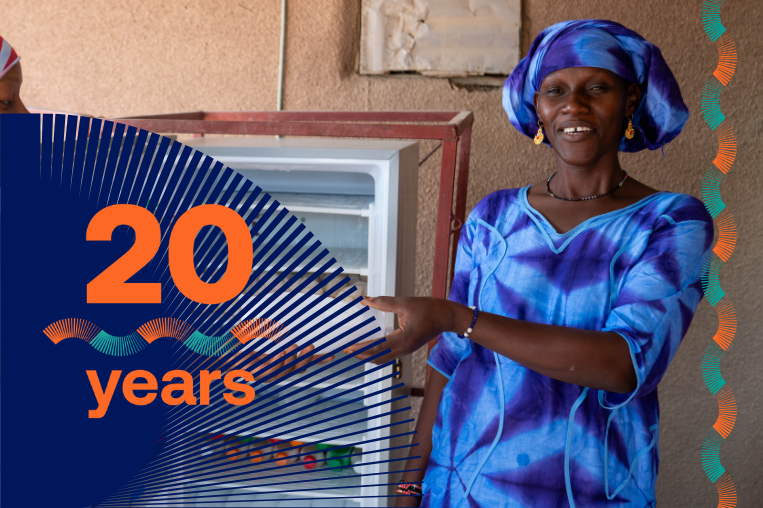Rural communities in Barouéli, central Mali, have found their own way to invest in solar-powered solutions. People support each other through revolving energy funds, set up along with EnDev but designed for autonomy. They are electrifying social infrastructure, bringing refrigerators and water pumps to residents on lease-to-own terms, and ensuring repairs. The communities and EnDev arrived at this new practice from simple beginnings: an experiment with battery charging stations that evolved into much more. Now EnDev will carry the idea from Barouéli further into fragile contexts, where instability and conflict keep donors away and communities are their own most trusted investors.
Investing in each other
A solar pump for farmers, a television for a cafe, or fridges to generate extra household income: 11 far-flung Malian communities have taken the solar transition into their own hands. Financing comes from revolving funds, each managed by a committee of local residents that includes a trained technician. The committee decides which solar projects the community invests in. Repaid from private income or communal fees into a microfinance account, the fund continuously regenerates, ensuring maintenance and enabling future investments.
To kickstart the fund, a community begins with solar technologies leased-to-own from EnDev over a span of 3 years. The long lease offers easy terms while the committee and fund get up and running smoothly. Once the first investment is paid off, the committee can choose new projects to back, either private or collective, ensuring continuous growth and access to clean energy.
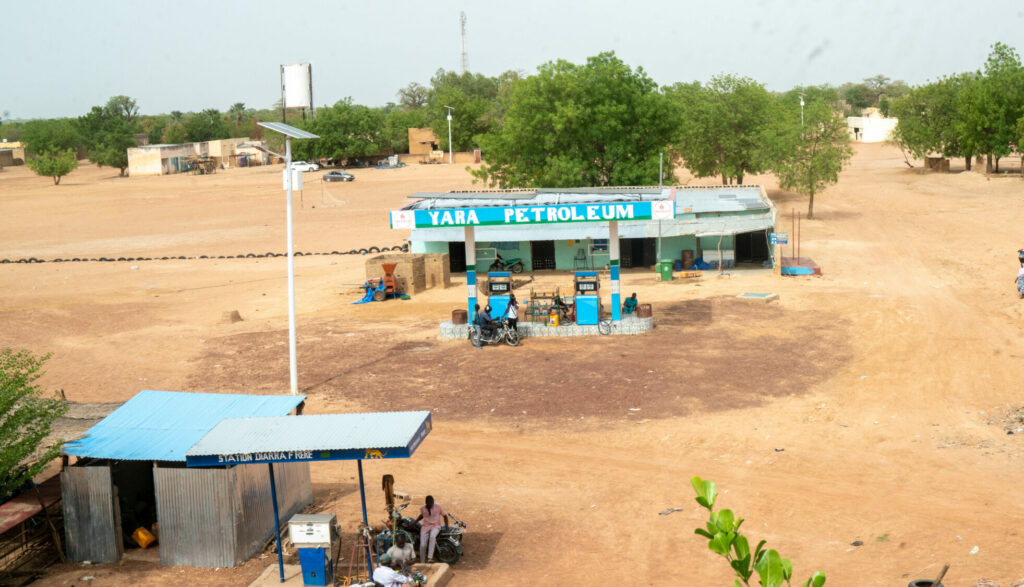
It all started with cold juice and inspiration
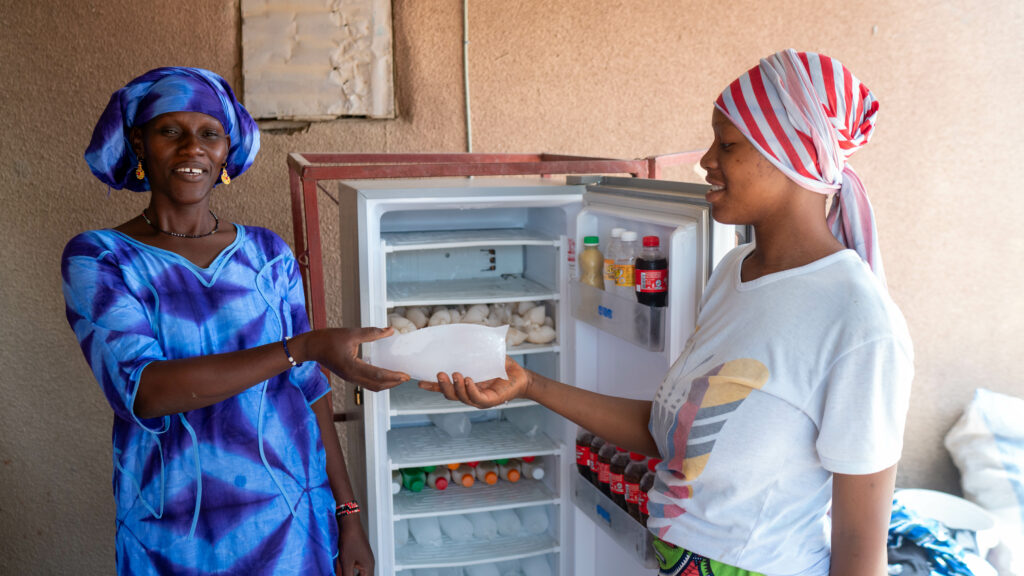
The road to this practice began in 2009, with EnDev testing solar solutions in health centres, schools, administrative buildings, and – more experimentally – community-owned charging stations where people could bring household batteries for a solar top-up. The charging stations did not prove economically sustainable, so EnDev reimagined them as multi-service energy kiosks run by the local trained technicians. These introduced a growing list of equipment for use and lease-to-own, including lamps, televisions, refrigerators, and pumps.
Surprisingly, it was refrigerators installed at the kiosks that changed the game. These brought new life to the establishments as women’s groups filled the fridges with fresh juices to sell, making the kiosks profitable at last, both for the groups and the technicians running the kiosks. With solar energy spinning off into other activities, communities filled up their maintenance funds and started asking, “what’s next?”
They proposed the idea for the revolving funds: beyond maintenance, these would let residents grow their energy infrastructure together. EnDev put the idea into practice in Barouéli, a 4,000-square-kilometre cercle (department) in the heart of Mali, in 2017. Instead of choosing technologies, EnDev supported communities to consider their own energy needs in terms of productive technologies, establish the energy funds they envisioned, and set clear management protocols so they could keep investing without waiting on outside support. So far, 150 technologies have been financed via the funds.
150
technologies financed via the funds.
Facing fragility, banking on trust
Not needing to wait on outside support is a big advantage in Mali. Most people outside the capital live in fragile contexts, with the sharpest instability in the north. With only 17% of widely dispersed rural people having electricity, decentralised solar solutions are the most promising, and more of these come on the market every year. However, the risk appetite of development partners is falling. People in Mali’s fragile contexts are being left behind.
Barouéli is more stable than many areas in Mali, so it has been an effective starting point for a practice that EnDev will now bring to regions and people left farther behind. In the more fragile country’s north, EnDev has already established 6 new energy kiosks, electrified 212 health centres, and has supported 4,281 people in conflict settings to gain access to energy, supporting stabilisation efforts.
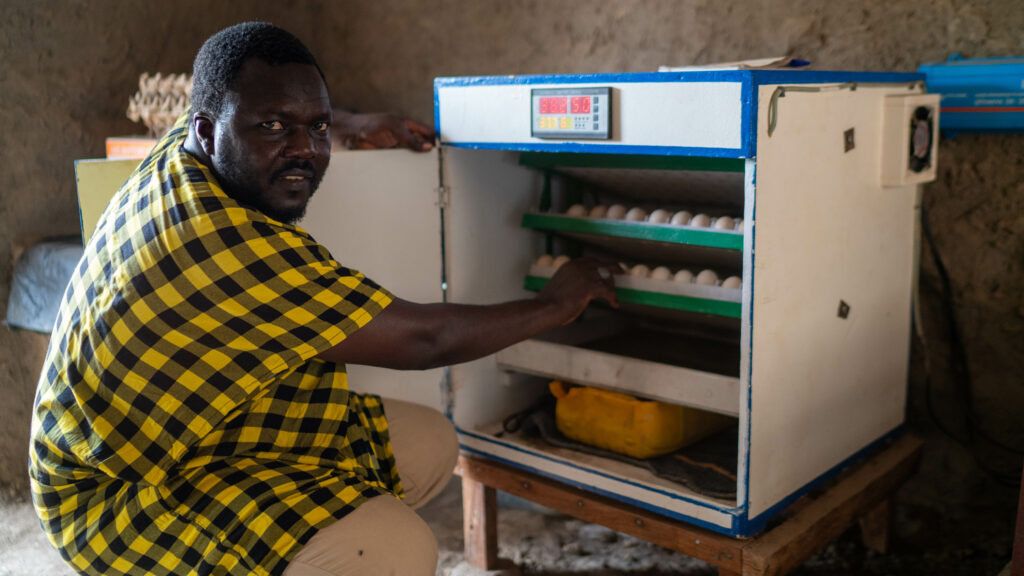
In fragile contexts, it is essential for someone to monitor funds and follow up with lessees who encounter problems. EnDev supports committees during their first 3-year lease so they can manage these tasks ably and autonomously in the longer term. Maintenance skills are also most valuable when they are local, so EnDev trains a technician in each community to keep the kiosk running, serve in the energy committee, and make routine repairs to productive use technologies. Ultimately, EnDev and the committees aim to sensitise all local residents on the approach so they can follow and engage in decisions.
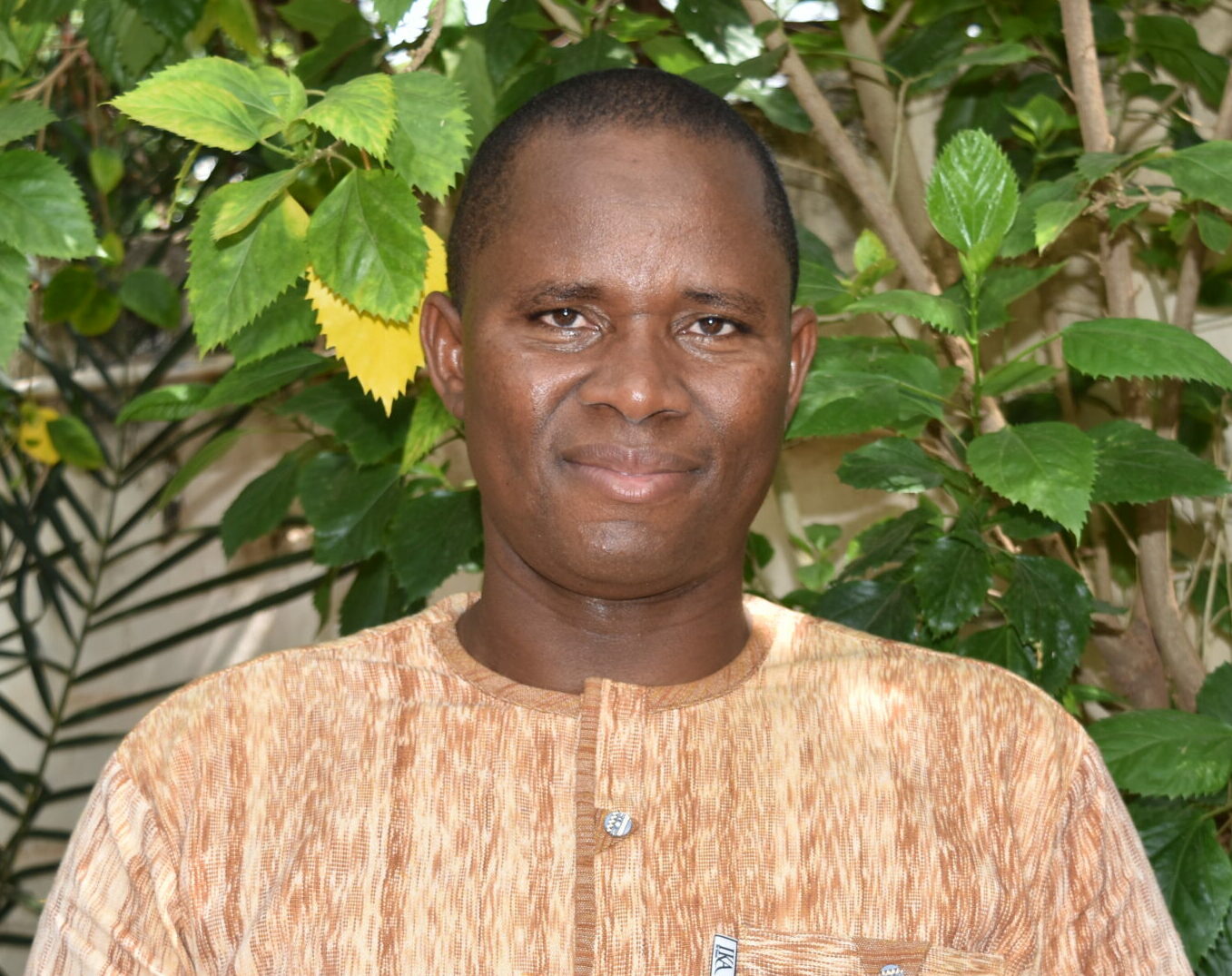
Most of all, the revolving funds will enhance the valuable currency of trust – a true asset in communities that have been left behind amid constant power changes, armed conflict, and an investment vacuum. In such contexts, communities will be the best actors to manage their own needs. People need to trust each other to make and sustain investments together, and the revolving funds exercise that trust, EnDev has found. The practice shines as people build on each others’ individual livelihood improvements through solar energy and productive use technologies to make progress as a whole community, with adaptable solutions for uncertain times.
Key take-aways
Embrace community innovation
Be open to experimentation and ideas from communities; a community-managed approach will have high sustainability and create long-term change.
Assess collective fund management
Consider collective management of maintenance funds as an indicator of communities’ capacity for self-guided investment.
Pilot revolving funds widely
Test revolving funds that build trust and autonomy in stable areas, but consider their potential value in more fragile contexts, too.
